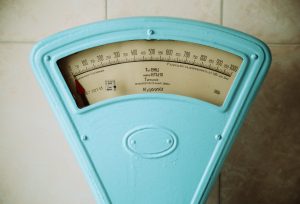I am sure that you’ve heard the terms “good debt” and “bad debt”. People use these terms and have great and glorious conversations and debates around them. There is merit to the discussion as maxing out your credit card and struggling to pay it back for years can’t possibly bring any good. But on the other end of the spectrum, using debt to grow your company might be a great use. This is an area that can be very clear or very murky, and it often comes down to circumstance and perspective.
What is debt?
When you search for the definition of debt, google comes back with the following:
Debt – something, typically money, that is owed or due.
While debt isn’t always about money, the typical definition in our world is a person who owes an institution or company money. That might be a little clinical sounding, but when we see reference to debt, we instinctively think about money. I would say this has become more the case as people take on any carry more financial debt.
The part that isn’t defined is what the money is for, and that is where we can start introducing the concept of good or bad with reference to the debt.
What is bad debt?
From an accounting perspective, bad debt is money that you can’t collect on, but in society in general, the term takes on a much broader and often murkier definition. While the accounting and tax term is correct, it only looks at the debt from the perspective of the company that is owed the money.
Bad debt in the broader context is debt that you incur that does not carry with it the possibility to increase or create value for you and often ends up costing a lot more. The most common example of bad debt is your typical consumer goods purchased on credit cards. Those goods never retain value (ok mostly never keep their value), and you are stuck paying interest on a purchase made a long time ago.
What is good debt?
If a bad debt is something that doesn’t provide monetary value in the long run, then naturally, good debt is one that does. The quintessential example when people refer to a good debt is a mortgage you get when you buy a house. Even if your house does not increase in value, or drops, when everything is said and done, it still has value and a lot of it.
Debt: Good versus bad?
The idea of good debt or bad debt can get murky quickly depending on the situation and how you look at it. I want to illustrate this with a specific example, a car loan. A car is often referred to as a big-ticket item, and most people need some form of financing to get a car (84.2% of new car purchases are financed). I want to use this example because it’s not entirely as cut and dry as, say, buying a new shirt on your credit card.
If you go to a dealership to get a new car, you’re likely taking on debt. The question if this is good debt or bad debt gets murky because: at the end of life, cars have no value. I’m sure I’ll have a car buff get upset with me over this example, but when the car is dead, and there is no reason to fix it if you’re lucky, the value is the cost of the scrap metal if you find someone to take it.
You buy a car because you presumably need it to get around from point A to B, so the car carries the intangible value of transportation, which can get you to a money-making job. The value you get back isn’t monetary as with our definition; actually, it costs you more to maintain the car. At the end of the day, your car’s value will drop to zero or almost zero; your taking on the debt has to value left. The challenge arises because the car retains some value throughout its life depending on usage and how it’s maintained, add to that the fact the financing period is shorter than the life of the car.
Is a car loan good debt or bad debt? At the end of the day, it depends on a lot of factors, especially if you are using the car to get to work or to make money directly.
Can you have good debt?
The car example brings up a separate question, can you have good debt. The difference a car has to a house when it comes to being good or bad debt is the car’s value will decrease to zero (for argument’s sake). The house, on the other hand, will have value when you pay it off, barring some rather extreme situations, it will likely increase in value.
Doesn’t taking on debt cost you money in the form of interest? In short, the answer is yes, which is why some people argue that any form of debt is bad debt, and there really isn’t any form of good debt. I would say that there is a difference between types of debt between good and bad because for the things that produce long term value for the person who takes on the debt they might not have been able to make the purchase without the debt
- House
- Business
- Education
They can all be bad debts under some circumstances, but under typical situations, the lasting value is positive. You can twist and turn logic in many ways and find scenarios where a bad debt can also be a good debt looking at it from a different perspective. In general, if the debt provides you with value, ideally increasing value, it is a good debt; if it does not produce value but costs you more, then it is a bad debt.
Other examples of good debt
Another example of a good debt that you can have is taking a loan to buy or start a business. Taking that debt load on produces returning value, year over year, and potentially has a more significant impact on society by creating jobs. Yes, the debt incurs a cost in the form of interest, but it adds tangible and intangible value.
Debt allows you to leverage
Debt is a potent tool if used correctly, and it’s how many wealthy people get wealthier. Companies grow in size based on being able to get loans. It increases the speed with which things can be done. Take, for example, a company expanding their production plant, they incur the cost of the debt and interest, but it allows them to produce more revenue, more goods, and more jobs, all of which returns a value greater than the cost of the loan.
Debt has a place in society, it is a tool, and if used well, it can increase and create value. It can allow a person to buy a home; it can enable the entrepreneur to start a business. But, like all tools, it can also carry with it a negative element in overbearing consumer debt. Can you have good debt? Absolutely, but like a lot of tools, it comes down to how you use debt and your specific circum

